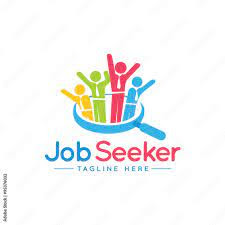ASPENTECH IS HIRING FOR ENGINEER
- Qualification : Bachelor’s degree or above, Engineering related major.
- 0~2 years working experience in chemicals/refining industry or producing content for education/training.
- Excellent verbal and written English language skills.
- Expert knowledge of MS Office, especially PowerPoint.
- Familiar with latest eLearning technologies like LMS, MOOC, SCORM, Python.
- Passionate about education and digital learning.
- Location: Pune
interview questions and answers
Q1: What do you understand by eLearning, and why is it important?
Answer:
eLearning means learning using digital resources like videos, slides, and interactive lessons instead of a traditional classroom. It is important because it allows people to learn from anywhere and at their own speed. In companies, it helps train employees quickly and consistently. For AspenTech, eLearning helps users understand how to use their software effectively.
Q2: What tools have you used to create eLearning modules?
Answer:
I have used tools like PowerPoint to design slides, Camtasia or Adobe Premiere Pro for video editing, and Audacity for audio editing. For online training content, I know about SCORM (a format used in eLearning) and how content is uploaded to LMS (Learning Management Systems) like Moodle. I am also learning Python, which helps create small simulations or interactive tools.
Q3: What is SCORM and why is it used?
Answer:
SCORM stands for Sharable Content Object Reference Model. It is a standard used in eLearning to make sure the training modules work properly with LMS platforms. It allows content to track learner progress, like how many modules they completed or how they scored in quizzes. It’s very helpful in companies to track employee learning.
Q4: Do you have experience working with Learning Management Systems (LMS)?
Answer:
Yes, I have experience working with LMS platforms like Moodle and TalentLMS. I have uploaded eLearning content, organized modules, tracked student progress, and created quizzes and certificates. LMS helps manage all training in one place and makes it easier for learners to access the materials.
Q5: How do you collect and organize content before developing a training module?
Answer:
First, I discuss with subject matter experts (SMEs) or team members to understand the software or topic. I collect raw materials like manuals, videos, or screenshots. Then, I organize them in a logical flow, like Introduction → How it works → Step-by-step usage → Summary. I write scripts or storyboards and get them reviewed before recording or designing the eLearning module.
Communication & Collaboration Questions
Q6: How do you communicate with global teams when working on a project?
Answer:
I usually communicate using email, video calls (like Zoom or Microsoft Teams), and project tools like Trello or Jira. I always keep notes and summaries of meetings and share updates regularly. I understand that people in different countries may have different working hours, so I try to be flexible and respectful with time zones.
Q7: How do you explain technical content to non-technical learners?
Answer:
I use simple language and real-life examples to explain difficult topics. I avoid jargon unless necessary. For example, if I’m explaining software configuration, I may compare it to setting up a smartphone for the first time. I also use visuals like diagrams, animations, and step-by-step instructions to make it easier to understand.
Behavioral / HR Questions
Q8: Tell me about a time when you worked in a team to complete a project.
Answer:
In my college project, I worked with 4 teammates to create an online quiz application. I was responsible for the user interface and content design. We had regular discussions, divided the work clearly, and helped each other. Sometimes we had different opinions, but we discussed and found common ground. The project was completed on time and worked successfully.
Q9: How do you handle feedback or criticism?
Answer:
I see feedback as an opportunity to improve. If someone tells me that my content needs changes, I don’t take it personally. I listen carefully, ask questions if I don’t understand, and then try to make the corrections. In my last project, my trainer said the audio volume was too low—I edited and fixed it the same day.
Q10: Why do you want to work at AspenTech?
Answer:
AspenTech is a well-known company in the engineering and software field. I want to work here because it offers the chance to learn and grow in digital learning and work on global projects. The job role matches my interests in technology, education, and creativity. I am excited to be part of a team that creates content to help others learn better.
Extra Technical Knowledge (Optional but Useful)
Q11: What is Python used for in eLearning?
Answer:
Python can be used in eLearning for creating interactive simulations, data analysis for learner progress, and automating repetitive tasks. For example, you can create a simple script to generate quiz reports or to convert files in bulk. It’s not always required but can be very helpful for advanced eLearning solutions.
Q12: How do you ensure the quality of your eLearning content?
Answer:
I follow a content development lifecycle:
Plan and script the module
Get it reviewed by experts
Create visuals and media
Do a technical and quality check
Test in LMS
Collect feedback from learners
I also make sure there are no grammar errors, audio is clear, and the module works smoothly on different devices.
Tips for Candidates Applying:
Update your resume to highlight any experience in eLearning tools, video/audio editing, or LMS platforms.
Create a sample training video or mini-course, even as a college project—it’s a big plus.
Show passion for education and digital learning during the interview.
Prepare examples from past group work, projects, or internships to show teamwork and communication skills.




.jpg)

.jpg)







.png)
0 Comments